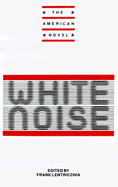5 - Tales of the Electronic Tribe
Published online by Cambridge University Press: 05 June 2012
Summary
The first 11 days of the Persian Gulf war have had the feeling of a surreal spectator sport here, with the President constantly flicking television channels in the study off the Oval Office and with other senior officials gathered in semicircles with sandwiches around the television set.… Robert M. Gates, the deputy national security advisor, has found the obsessive television watching at the White House so distracting – and perhaps diminishing to the myth of privileged information – that he refuses to even turn on his office television set now, loyally waiting for reports from the Situation Room.
But even that top-secret intelligence, widely presumed to be fuller and more accurate, has been infected by the television coverage.
“The problem is that it's hard to sort out the information because the CNN stuff has a way of trickling into the intelligence,” another Bush advisor said, referring to Cable News Network, the potent new entry in Washington's alphabet soup. “We get the intelligence reports and they include stuff that's on CNN. Then we get another report that seems to confirm what the first report said, but it turns out that they're just using a later CNN broadcast. CNN confirming CNN.”
–New York Times, January 29, 1991“Postmodernism”: Our key term of cultural self-consciousness – a word we utter from within the dark wood in order to define not merely contemporary art and literature of the first world, but also who we are, how we live.
- Type
- Chapter
- Information
- New Essays on White Noise , pp. 87 - 113Publisher: Cambridge University PressPrint publication year: 1991
- 6
- Cited by



